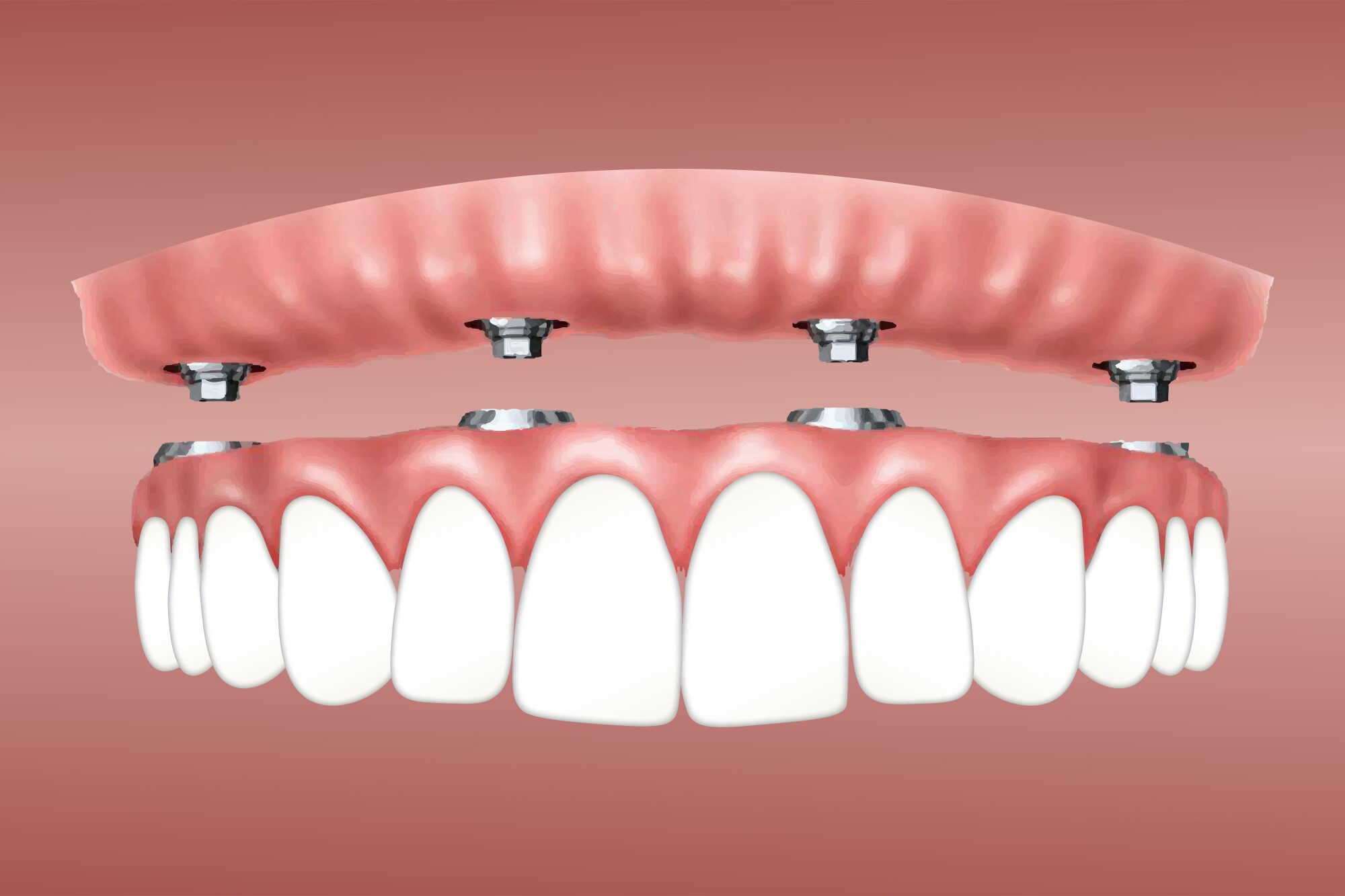Things about Dental Sense
Things about Dental Sense
Blog Article
Fascination About Dental Sense
Table of ContentsA Biased View of Dental SenseDental Sense - QuestionsExcitement About Dental SenseHow Dental Sense can Save You Time, Stress, and Money.
are medical tools operatively dental implanted right into the jaw to recover an individual's capability to eat or their appearance. They give assistance for man-made (fake) teeth, such as crowns, bridges, or dentures. When a tooth is shed due to injury or disease, a person can experience issues such as rapid bone loss, malfunctioning speech, or modifications to chewing patterns that result in pain.Oral dental implant systems include a dental implant body and dental implant abutment and might additionally consist of a joint addiction screw. Dental implant vs bridge. The oral implant body is surgically inserted in the jawbone in location of the tooth's root. The oral implant joint is normally connected to the dental implant body by the abutment fixation screw and expands via periodontals right into the mouth to support the affixed artificial teeth
(https://go.bubbl.us/e7bebd/a315?/Dental-Sense)Structure of The Oral Implant System selecting oral implants, speak with your oral provider regarding the potential advantages and threats, and whether you are a prospect for the procedure. Things to think about: Your overall health and wellness is a vital consider identifying whether you are a great candidate for oral implants, how much time it will certainly require to recover, and the length of time the dental implant may remain in place.
Cigarette smoking might influence the healing process and reduce the long-term success of the dental implant. The recovery process for the dental implant body may take several months or longer, throughout which time you generally have a momentary abutment instead of the tooth. the oral implant procedure: Thoroughly adhere to the dental hygiene instructions provided to you by your dental supplier.
Things about Dental Sense
Implant failing can lead to the need for an additional surgery to fix or replace the implant system. Brings back the ability to eat Restores cosmetic look Helps keep the jawbone from diminishing due to bone loss Maintains the health of the bordering bone and periodontals Aids keep nearby (neighboring) teeth secure Enhances lifestyle Damages to surrounding natural teeth during implant positioning Injury to the surrounding tissues throughout surgical treatment, such as sinus opening Injury throughout surgical treatment (as an example, fracture of surrounding jawbone) Insufficient feature, such as seeming like the teeth do not bite with each other normally An experience that the tooth is loose or twisting in place resulting from an abutment screw loosening Implant body failing (looseness of the dental implant body) because of systemic infection, which might be much more likely in clients with unchecked diabetes because of local infection in bone and gums sustaining the dental implant body due to postponed recovery, which might be more probable in clients that smoke Trouble cleaning up the gum tissues around the implant, leading to bad oral hygiene Neglected periodontal condition Post-surgical feeling numb as a result of nerve impingement or damage Always alert healthcare suppliers and imaging professionals that you have dental implants before any kind of magnetic resonance imaging (MRI) or x-ray treatments.
FDA is not knowledgeable about any type of negative occasions reported for MRI or x-ray treatments with oral implants. Dental implants systems are typically made from materials that adhere to worldwide consensus requirements of the International Organization for Standardization (ISO) or ASTM International. These criteria have information of what makes a secure material.

A dental implant is a structure that changes a missing tooth. With screw-like devices, the specialist inserts an implant into the jawbone, and it acts as a support for a man-made tooth, called a crown. A gadget called an abutment connects the synthetic tooth to the oral implant. The crown is tailor-made to fit the person's mouth and match the color of their teeth.
Facts About Dental Sense Uncovered
Some people are not eligible for dental implant surgery. It is for dental cosmetic surgeons to operate individuals with: severe illnessuncontrollable metabolic try here diseasebone or soft cells illness or infectionIf these issues are solved, a person can have the surgical procedure. In, oral cosmetic surgeons avoid operating people with: If people with any one of the above undertake dental implant surgery, there is a higher risk of the implant falling short.

Dental dental implant surgery is a tailored process. It's not the same for every person. The complying with gives a basic introduction of what you can anticipate your dentist, dental cosmetic surgeon, periodontist or prosthodontist to do: Position the implant operatively. Provide you time to heal. Connect the message and last crown, bridge or denture.
Next, your surgeon will very carefully position the dental implant into your jaw. If your dental implant is near the front of your mouth, your dental professional will make a short-lived tooth for you to put on up until you heal.
How Dental Sense can Save You Time, Stress, and Money.
During the healing phase, your jawbone must fuse to the dental implant. This procedure can take anywhere from 3 to nine months.
As soon as your dental implant heals, your dental practitioner can attach the joint (small port blog post) and your last repair (crown, bridge or denture). This normally takes concerning one hour to finish and may need a second small surgery. You shouldn't feel any kind of pain throughout your dental implant procedure due to the fact that your copyright will utilize medication to numb your gum tissues.
Report this page